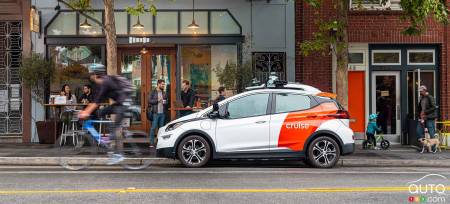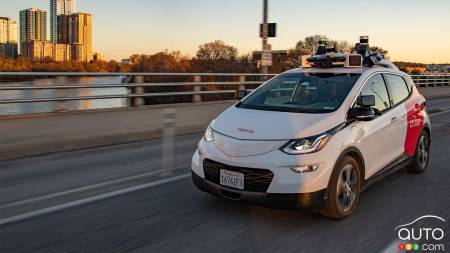Cruise is suspending its on-road operations in the United States, in order to review its “processes, systems and tools”. The company, a division of General Motors developing self-driving vehicles and technologies, also acknowledged that it has work to do if it is to “earn the public's trust”.
Not so fast
Autonomous drive vehicles are certainly among of the most eagerly awaited innovations of the next decade. Or might it be two? GM’s Cruise division, one of the major players in this technological race, is having to deal with safety issues that have shaken public confidence and raised regulatory concerns.
This week, Cruise announced the suspension of all its operations on American roads. This follows a directive by the California Department of Motor Vehicles (DMV) to Cruise to remove its autonomous vehicles from the state's roads. The main reason given by the DMV? That Cruise vehicles represented a risk to the public.
In early October, a woman was seriously injured in San Francisco after being hit by a car that threw her in front of a Cruise autonomous vehicle. According to one report, the Cruise vehicle detected the accident and came to a stop, as programmed. However, in the process of coming to a stop in a safe place, it dragged the woman for 6 meters.
Faced with such reports, Cruise now says it is committed to restoring public confidence. Recall that Cruise operates not only in California, but also in cities such as Phoenix, Houston, Austin, Dallas and Miami.

The suspension of on-road operations comes amid growing concerns about the safety of Cruise self-driving vehicles. The National Highway Traffic Safety Administration (NHTSA) had already opened a formal investigation in December after reports of three accidents involving Cruise cars that braked sharply, causing rear-end collisions.
Recently, NHTSA said it was investigating five new similar reports. The agency says it’s concerned about inappropriate braking by Cruise vehicles, even in the absence of obstacles, which could turn them into unforeseen obstacles on the road.
Cruise is cooperating fully with the agency in its investigation. The company has publicly stated that it welcomes NHTSA's questions about its operations and safety record.
This is not the first bump in the road for Cruise. This past August, the California DMV directed Cruise to withdraw half of its autonomous vehicles following another accident. An incident in October, in which a Cruise autonomous car failed to avoid a pedestrian, despite braking, heightened concerns. The DMV suggested that Cruise's cars might not have the ability to react adequately to incidents involving pedestrians.
Faced with those allegations, Cruise stood firm, maintaining that it had shown the DMV the full video of the October accident on several occasions.
The Cruise case highlights the major challenges facing autonomous car companies. While the technology promises to improve mobility and reduce accidents, safety issues remain paramount. At least, in terms of how these issues erode public confidence.
Companies and regulators will have to work hand in hand to secure this trust and guarantee a safe future for autonomous driving. Data continues to show that self-driving vehicles are involved in fewer accidents per vehicle than those driven by humans, but that is not enough if the public is not on board.
In other words, perception is everything here. The autonomous-vehicle industry may be condemned to produce vehicles that are virtually risk-free (like airplane manufacturers) if the public is ever to accept them. You can argue about why accidents caused by humans are considered an acceptable reality but not those caused by AI, but that is where society is.



